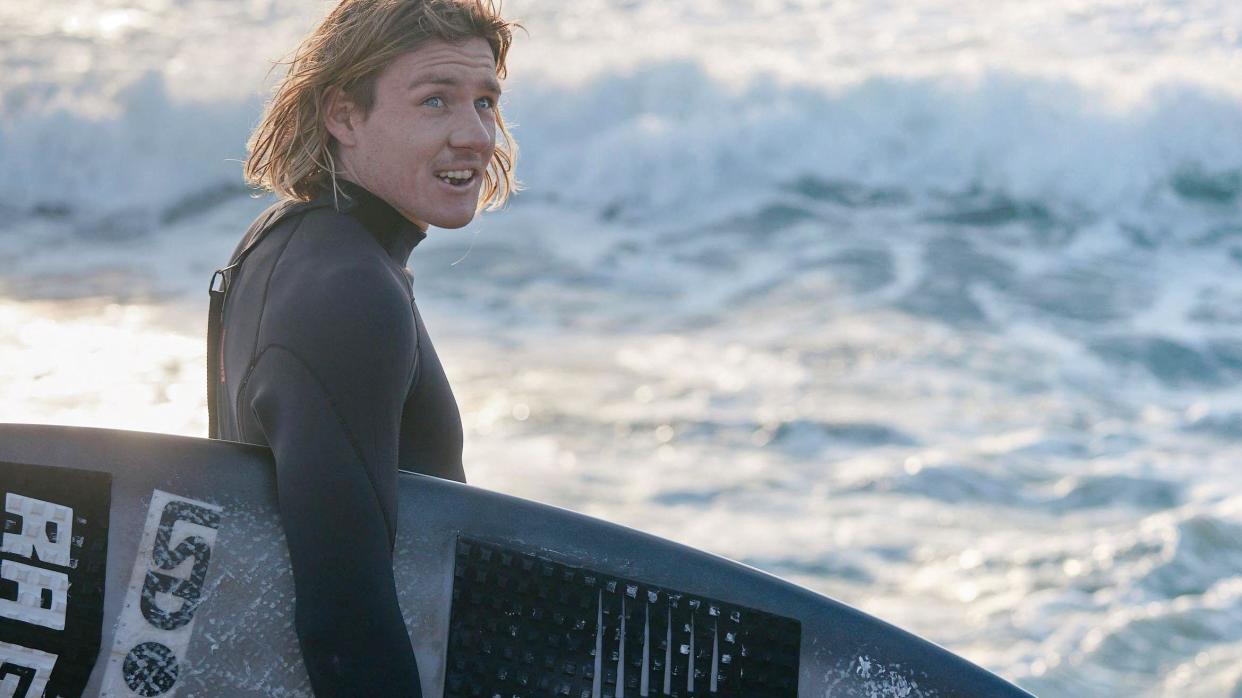Australian surfer's leg washes up after shark attack

The severed leg of a surfer who was attacked by a shark has washed up on an Australian beach, with doctors now racing to see if it can be reattached.
Kai McKenzie, 23, was surfing near Port Macquarie in New South Wales (NSW) on Tuesday, when a 3m (9.8ft) great white shark bit him.
He managed to catch a wave into shore, where an off-duty police officer used a makeshift tourniquet to stem his bleeding, according to authorities.
His leg washed up a short time later and was put on ice by locals before being taken to hospital, where a medical team is now assessing surgery options.
Mr McKenzie - who is a sponsored surfer - remains in a serious but stable condition, according to emergency services, who have thanked the off-duty officer for his rapid response to the incident.
“He used the lead off his dog as a tourniquet... and essentially saved his life until the paramedics got there,” said NSW Ambulance's Kirran Mowbray.
She described Mr McKenzie as “calm” and “able to talk” following the attack. “He’s just a really brave and courageous young man,” she added.
Mr McKenzie was rushed to a local hospital shortly after the incident, before being flown to the John Hunter Hospital - which is a major trauma centre - in Newcastle some 200km (124 miles) away. His severed leg also made the long journey.
The keen surfer had only recently returned to the water after suffering a significant neck injury which forced him to take time off from the sport, according to local media reports.
A GoFundMe page to help Mr McKenzie's family with his medical and rehabilitation costs has been created, attracting over A$75,000 ($49,000; £38,000) as of Wednesday.
While Australia has more shark attacks than any other country except the US, fatal attacks remain relatively rare.

